Advanced CNC Thread Rolling Machine for Precision Fasteners
Introduction to Advanced Thread Rolling Technology
In the realm of modern manufacturing, precision and efficiency are paramount. The ability to create robust, high-quality threads on various materials underpins numerous critical industrial applications. Thread rolling, as a cold forming process, offers significant advantages over traditional thread cutting, including superior thread strength, improved surface finish, and enhanced fatigue resistance. At the forefront of this technology is the cnc thread rolling machine, a sophisticated piece of equipment designed to meet the rigorous demands of contemporary industrial production. This article delves into the intricacies of these advanced machines, exploring their operational principles, technical specifications, diverse applications, and the competitive landscape they navigate.
We will cover essential aspects such as current industry trends driving innovation in thread rolling, detailed process flows, the undeniable technical advantages offered by CNC control, and practical application scenarios. Furthermore, we will address crucial considerations for B2B decision-makers, including vendor comparison, the availability of customized solutions, and real-world case studies that exemplify the transformative impact of these machines. Our objective is to provide a comprehensive, authoritative guide for professionals seeking to leverage the full potential of modern thread rolling technology.
Industry Trends and Market Dynamics
The global market for thread rolling machines is experiencing dynamic growth, propelled by increasing demand from the automotive, aerospace, construction, and general manufacturing sectors. Key trends shaping this industry include a persistent drive towards higher automation, enhanced precision, and greater material versatility. Manufacturers are increasingly seeking solutions that offer faster cycle times, reduced material waste, and the capability to process harder, more exotic alloys.
- Automation & IoT Integration: Modern thread rolling machines are being integrated with advanced automation features, including robotic loading/unloading systems and Industry 4.0 connectivity. This allows for real-time monitoring, predictive maintenance, and seamless integration into smart factory ecosystems.
- Increased Precision & Control: The advent of sophisticated CNC systems has led to unparalleled control over the thread rolling process, enabling the production of threads with tighter tolerances and superior surface finishes, crucial for high-performance applications.
- Sustainability & Energy Efficiency: Manufacturers are prioritizing machines that offer reduced energy consumption and minimal environmental impact. Innovations in hydraulic systems and motor technologies contribute to significant energy savings, aligning with global sustainability initiatives.
- Multi-functional Capabilities: Many modern machines offer flexibility, capable of handling various thread forms and sizes, often with quick changeover tooling. This versatility is particularly evident in machines like the flat thread rolling machine, which can efficiently produce a range of threaded fasteners.
- Miniaturization and Specialization: There's a growing niche for compact and specialized equipment, such as the mini thread rolling machine, catering to specific production needs or smaller workshop environments without compromising on precision.
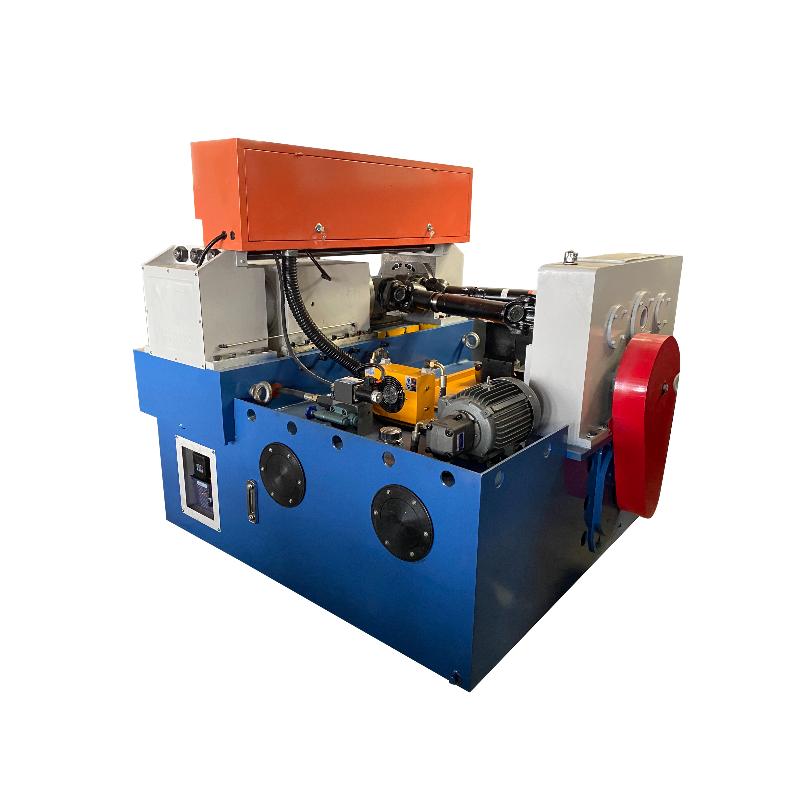
Figure 1: High-precision components produced by a cnc thread rolling machine.
These trends underscore a commitment to continuous improvement, driving manufacturers to invest in advanced thread rolling solutions that offer a competitive edge in a demanding global market.
Manufacturing Process of a CNC Thread Rolling Machine
The construction of a high-performance cnc thread rolling machine involves a meticulous process, ensuring durability, precision, and long service life. The manufacturing of the machine itself adheres to stringent quality controls and advanced engineering methodologies.
Machine Component Manufacturing Process:
- Material Selection: High-grade cast iron (e.g., Meehanite for bases and frames) is selected for its vibration damping properties and structural rigidity. High-alloy steels (e.g., CrMoV, AISI 4140) are used for critical components like spindles, gears, and rolling dies due to their superior hardness and wear resistance.
- Casting & Forging:
- Casting: The machine's main body, base, and significant structural elements are typically cast to achieve complex shapes and mass for stability. These castings undergo stress relief annealing to prevent warping and ensure long-term dimensional stability.
- Forging: Critical power transmission components such as crankshafts, connecting rods, and high-stress gears are forged. Forging imparts superior grain structure, enhancing strength, fatigue resistance, and overall reliability.
- CNC Machining: Following casting and forging, components undergo precision CNC machining. This includes milling, turning, grinding, and boring to achieve exact dimensions, geometric tolerances (e.g., parallelism, perpendicularity), and surface finishes. Key components like the headstock, slide mechanisms, and die holders are machined to microns of accuracy.
- Heat Treatment: Hardening, tempering, carburizing, or nitriding processes are applied to critical wear parts (e.g., rolling dies, gears, lead screws, guide ways). This enhances surface hardness, wear resistance, and core toughness, significantly extending the service life of these components.
- Grinding & Lapping: Precision grinding operations are performed on mating surfaces and critical bearing journals to achieve extremely tight tolerances and smooth finishes, minimizing friction and ensuring accurate movement. Lapping may be used for ultra-flat surfaces.
- Assembly & Alignment: Skilled technicians meticulously assemble the machine, aligning critical axes and components (e.g., spindle parallelism, die alignment). This phase is crucial for the machine's overall accuracy and performance.
- Electrical & Hydraulic System Integration: The CNC control unit, motors, sensors, and safety interlocks are integrated, along with the hydraulic system (for machines like the hydraulic threading machine). All wiring and piping are carefully routed and secured.
- Testing & Calibration: Each machine undergoes rigorous testing, including functional tests, load tests, noise/vibration analysis, and repeatability tests. Performance is verified against international standards such as ISO 9001 for quality management and relevant ANSI/DIN standards for thread accuracy and machine specifications.
Service Life and Target Industries:
A well-maintained cnc thread rolling machine, constructed with the described rigor, typically boasts a service life of 15-25 years, often longer with proper care and component replacement. These machines are indispensable across a broad spectrum of heavy industries:
- Automotive: Production of engine bolts, axle components, steering linkages, and various threaded fasteners requiring high fatigue strength.
- Aerospace: Manufacturing of critical fasteners for aircraft structures, where reliability and material integrity are non-negotiable.
- Construction: Creation of rebar, anchor bolts, foundation bolts, and structural fasteners.
- Petrochemical: Production of corrosion-resistant bolts and studs for pipelines, valves, and structural elements in harsh environments, often requiring specialized coatings and materials like stainless steel or superalloys.
- Metallurgy: Threading of rods and bars used in various metal processing equipment.
- Water Supply & Drainage: Manufacturing of specialized pipe fittings, flanges, and connection elements requiring robust and leak-proof threads.
- Energy Sector: Components for wind turbines, power generation equipment, and oil & gas extraction, demanding exceptional strength and endurance.
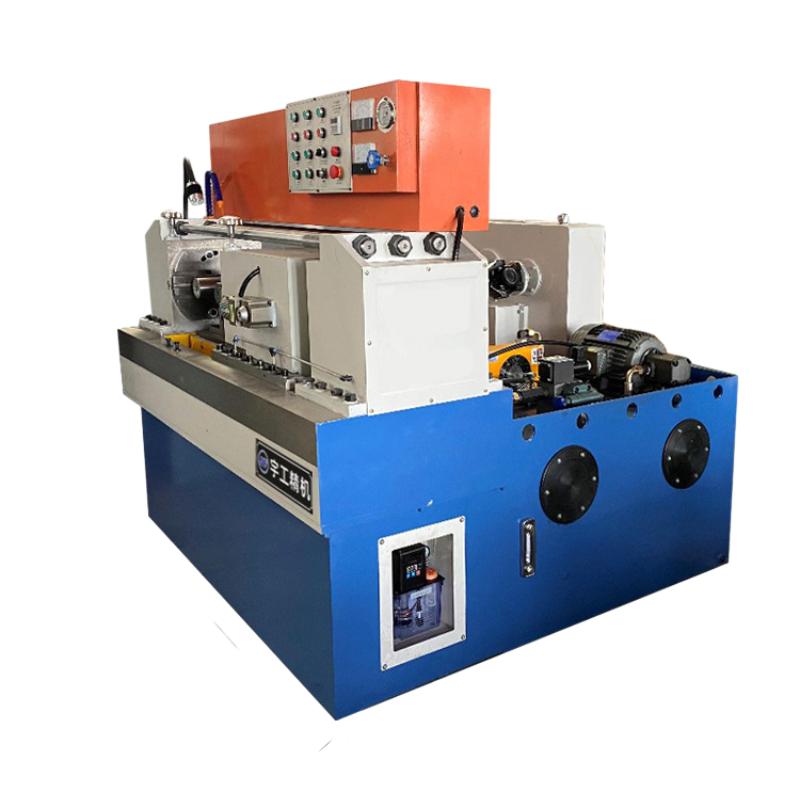
Figure 2: Interior view of a cnc thread rolling machine's robust mechanical assembly.
In these demanding scenarios, the advantages are clear: the cold forming process inherently increases the material's yield strength and improves its fatigue life, leading to fasteners that are not only stronger but also more resistant to stress corrosion cracking, crucial for sectors like petrochemical where corrosion resistance is paramount.
Technical Specifications and Performance Parameters
The performance of a cnc thread rolling machine is defined by a comprehensive set of technical specifications. These parameters guide industrial purchasers in selecting the appropriate machine for their specific production requirements. Below is a representative table of specifications for a typical high-performance model, incorporating real-world data points and critical considerations.
Product Specification Table: CNC Thread Rolling Machine
| Parameter | Description / Value Range |
|---|---|
| Model Number (Example) | MOT-TRM-32CNC |
| Rolling Diameter Range | 5 mm - 32 mm (0.2" - 1.25") |
| Rolling Pitch Range | 0.8 mm - 4.0 mm (10-32 TPI) |
| Max. Rolling Length | 150 mm (6") (Thru-feed infinite) |
| Main Motor Power | 11 kW (15 HP) - Servo Driven |
| Hydraulic Motor Power | 3.7 kW (5 HP) (for hydraulic threading machine variants) |
| Max. Rolling Pressure | 15-25 Tons (adjustable) |
| Rolling Die Diameter | 90 mm - 160 mm (3.5" - 6.3") |
| Rolling Die Width | 80 mm - 120 mm (3.1" - 4.7") |
| Feeding Method | In-feed (Plunge) / Thru-feed |
| Control System | Siemens / Fanuc / Mitsubishi CNC |
| Machine Dimensions (L x W x H) | Approx. 1800 x 1200 x 1600 mm |
| Machine Weight | Approx. 2500 kg - 4000 kg |
| Thread Accuracy (Typical) | ISO Class 6g / ANSI 2A |
| Production Rate (M10x1.5, 30mm long) | 40-80 pieces/minute (in-feed) |
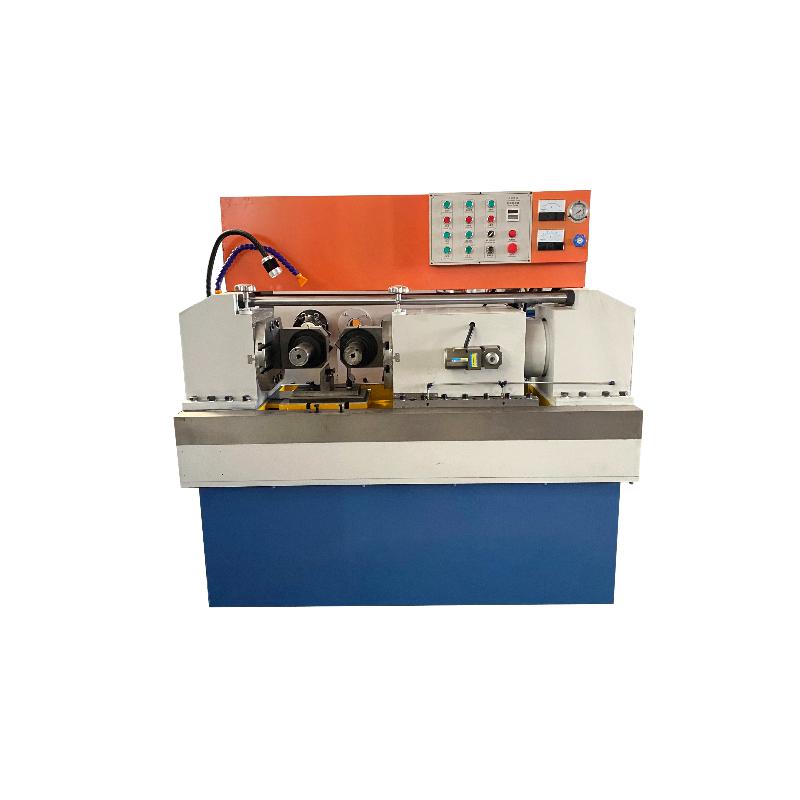
Figure 3: Detailed view of the rolling dies and workpiece on a cnc thread rolling machine.
These specifications underscore the versatility and robustness of contemporary thread rolling technology. The integration of powerful servo motors and advanced CNC controls ensures precise and repeatable operations, critical for high-volume production with exacting quality standards.
Application Scenarios and Versatility
The adaptability of the cnc thread rolling machine makes it suitable for a myriad of applications across various industries. Its ability to produce threads with superior mechanical properties is particularly valuable where strength, fatigue resistance, and durability are non-negotiable.
- Fastener Manufacturing: From standard machine screws and bolts to high-tensile fasteners for heavy machinery, thread rolling is the preferred method for mass production due to its speed and consistency. The flat thread rolling machine excels in producing external threads on continuous rods or short blanks, making it ideal for high-volume fastener production.
- Automotive Components: Engine components, suspension parts, steering linkages, and axle shafts often feature rolled threads to withstand dynamic loads and vibrations. The cold working process enhances the fatigue life of these critical components.
- Aerospace Industry: High-strength, precision threads for aircraft fasteners, landing gear components, and engine mounts are routinely produced using thread rolling to meet stringent safety and performance standards. Materials like titanium and specialized alloys are commonly processed.
- Construction and Infrastructure: Production of anchor bolts, rebar coupling threads, and large diameter threaded rods used in civil engineering projects. The cold rolled threads exhibit excellent resistance to pull-out forces and environmental stress.
- Oil & Gas Sector: Threading of OCTG (Oil Country Tubular Goods) components, specialized studs, and heavy-duty bolts for wellhead equipment and pipeline systems, often from high-nickel alloys known for their corrosion resistance.
- Medical Implants: For some non-invasive or external medical devices requiring fine, precise threads, thread rolling provides clean, burr-free threads without material loss, which is critical for biocompatibility and functionality.
- Small Parts & Electronics: The mini thread rolling machine is particularly suited for miniature fasteners, precision screws for electronics, watches, and intricate instruments, where small size and high accuracy are paramount.
These diverse applications underscore the thread rolling machine's essential role in modern manufacturing, delivering superior thread quality across a spectrum of industrial demands. Customer feedback consistently highlights the reliability and consistency of parts produced via this method, noting fewer rejections and enhanced end-product performance.
Technical Advantages of CNC Thread Rolling
Compared to traditional thread cutting or grinding, the cnc thread rolling machine offers a range of compelling technical advantages that translate directly into cost savings, improved product quality, and increased production efficiency.
- Superior Thread Strength: Thread rolling is a cold-forming process that rearranges the material's grain structure rather than cutting it. This creates continuous, unbroken grain lines that follow the thread contour, significantly increasing tensile strength, shear strength, and fatigue resistance by up to 30-50% compared to cut threads. This is vital for high-stress applications in automotive and aerospace.
- Improved Surface Finish: The cold working process burnishes the thread flanks, resulting in a smoother, work-hardened surface with a compressive residual stress layer. This enhanced surface finish (typically Ra 0.8-1.6 µm) reduces friction during assembly and improves resistance to galling and corrosion.
- Material Conservation: Thread rolling is a chipless process, meaning no material is removed or wasted as chips. This conserves raw material, leading to significant cost reductions, especially when working with expensive alloys.
- Higher Production Rates: Thread rolling is a much faster process than thread cutting or grinding. Modern CNC machines can achieve production rates of hundreds of pieces per minute, leading to lower per-unit manufacturing costs in high-volume production environments.
- Dimensional Accuracy and Repeatability: CNC control provides precise regulation of rolling force, speed, and die position, ensuring highly accurate and consistent thread profiles. This repeatability is critical for achieving tight tolerances and reducing rejects. ISO standards like ISO 228 and ISO 7616 are regularly met.
- Enhanced Corrosion Resistance: The cold working process compresses the material, densifying the surface and creating a more homogeneous microstructure. This, combined with the smooth surface finish, provides superior resistance to corrosion and environmental degradation, particularly beneficial for components in the petrochemical and marine industries.
- Versatility: A single machine can often produce a wide range of thread forms (metric, inch, acme, trapezoidal) and sizes by simply changing the rolling dies, offering operational flexibility.
- Energy Efficiency: Modern CNC systems and efficient hydraulic units (in hydraulic threading machine variants) are designed for optimal power consumption, contributing to lower operational costs and a reduced carbon footprint. For example, some systems utilize variable displacement pumps that only consume power on demand.
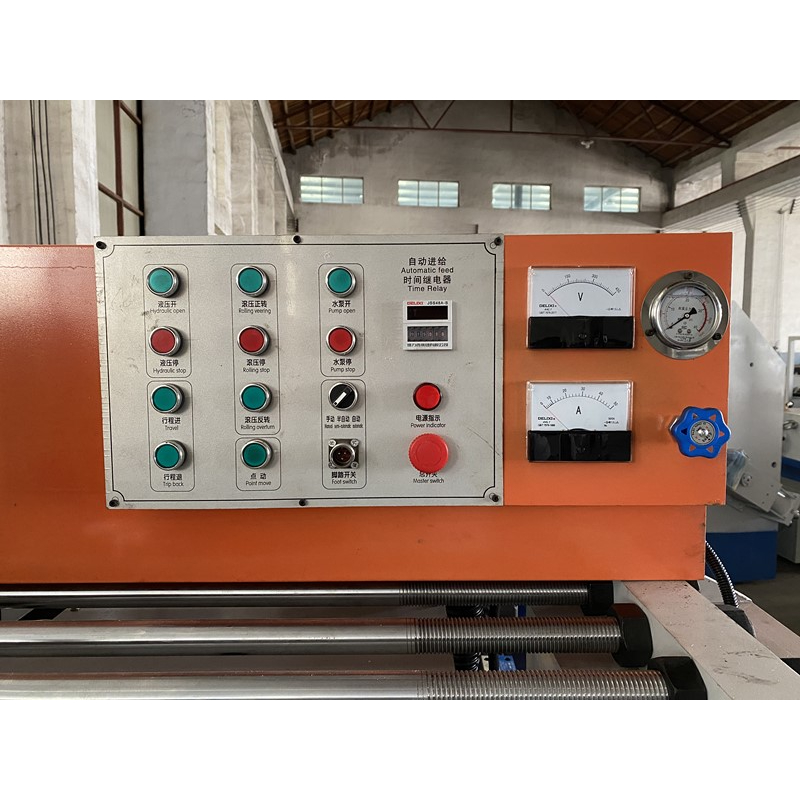
Figure 4: A general view of a high-performance cnc thread rolling machine in operation.
These advantages collectively position CNC thread rolling as the preferred method for producing high-integrity threads across a multitude of demanding industrial sectors.
Vendor Comparison and Selection Criteria
Choosing the right vendor for a cnc thread rolling machine is a strategic decision that impacts long-term operational efficiency and profitability. While many manufacturers offer competitive solutions, discerning buyers must evaluate several key factors beyond just the initial purchase price.
Key Comparison Points for Vendors:
| Criteria | High-Value Vendor Profile | Lower-Tier Vendor Profile |
|---|---|---|
| Machine Build Quality | Robust cast iron frame, high-precision ground components, premium bearings, extensive heat treatment. | Lighter frame construction, standard components, less meticulous finishing. |
| CNC Control System | Industry-standard brands (Siemens, Fanuc), intuitive HMI, advanced programming features, remote diagnostics. | Proprietary or less common systems, limited features, potentially higher learning curve. |
| After-Sales Support | Global service network, readily available spare parts, prompt technical assistance, online resources. | Limited support channels, longer lead times for parts, potential language barriers. |
| Customization & Flexibility | Ability to adapt machine for unique parts, integrate automation, specialized tooling, software customization. | Standard configurations only, limited adaptability for specific production needs. |
| Certifications & Compliance | ISO 9001, CE, ANSI, safety standards adherence, documented quality control. | Basic compliance or self-certification, less rigorous quality assurance. |
| Total Cost of Ownership (TCO) | Higher initial investment, but lower maintenance, energy consumption, and superior part quality lead to lower TCO. | Lower initial investment, but potentially higher maintenance costs, lower efficiency, and greater downtime increase TCO. |
When evaluating vendors, prospective buyers should also consider the vendor's years of experience in the industry, their track record with partner clients, and demonstrable expertise in specific applications (e.g., heavy-duty threading, miniature components, or specialized materials). Authored documentation, comprehensive technical manuals, and readily available test data are also indicators of a reputable supplier.
Customized Solutions and Application Case Studies
The flexibility of modern cnc thread rolling machine platforms allows for significant customization to meet unique production challenges. This ranges from specialized tooling and fixturing to fully integrated automated production lines.
Customization Capabilities:
- Specialized Die Design: For unconventional thread forms, specific material properties, or integrated features (e.g., knurling during rolling).
- Automated Part Handling: Integration with robotic loaders, vibratory bowls, and conveyor systems for lights-out manufacturing and increased throughput.
- Extended Bed Lengths: For exceptionally long threaded rods or pipes, particularly in construction and energy sectors.
- Multi-Pass Rolling: For very large diameters or hard materials, where threads are formed in multiple stages to manage stresses.
- Integrated Inspection: In-line quality control systems using vision sensors or laser micrometers for real-time thread measurement and defect detection.
- Custom Software Interfaces: Tailored CNC programming for complex thread geometries or specific production data logging requirements.
Application Case Studies:
Case Study 1: High-Volume Automotive Fastener Production
A leading automotive supplier faced challenges in producing high-tensile connecting rod bolts efficiently while maintaining stringent fatigue life requirements. By implementing a fully automated cnc thread rolling machine with integrated robotic loading and unloading, they achieved a 40% increase in production speed compared to their previous cutting process. The cold-rolled threads exhibited a 25% improvement in fatigue strength, significantly reducing warranty claims related to fastener failure. The chipless process also led to a 10% material cost saving annually. This solution was specifically designed to handle the high-strength alloy steel (e.g., 40CrNiMoA) and the high-volume demand.
Case Study 2: Precision Threads for Medical Device Components
A medical device manufacturer required ultra-fine, burr-free threads on small titanium components for a surgical instrument. Standard cutting methods often left micro-burrs and introduced material stress concentrations. A specialized mini thread rolling machine, equipped with customized micro-dies and a controlled lubricant delivery system, was deployed. The machine successfully produced threads with a pitch accuracy of ±0.005mm and a surface finish of Ra 0.2µm, well within the required biocompatibility and functional specifications. The consistency of the rolled threads minimized assembly issues and improved device reliability.
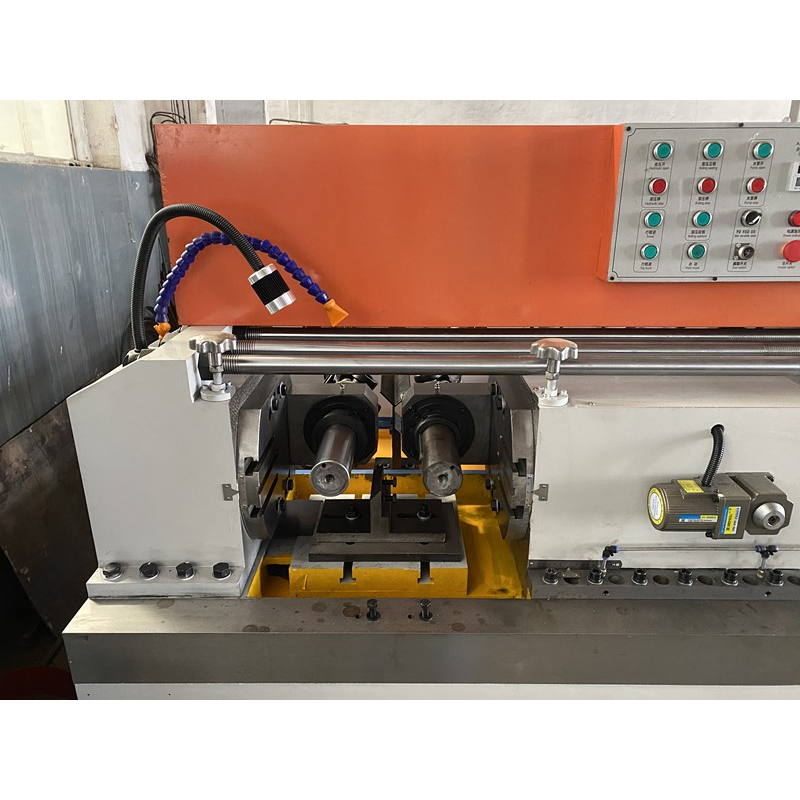
Figure 5: Close-up of rolled threads demonstrating the precision achievable with modern equipment.
These case studies illustrate the tangible benefits of investing in advanced thread rolling technology, showcasing how custom-engineered solutions can address specific industrial needs and deliver superior results.
Trustworthiness and Support: FAQ, Lead Time, Warranty
Frequently Asked Questions (FAQ)
Q: What materials can a cnc thread rolling machine process?
A: Our machines are capable of processing a wide range of ductile materials including carbon steel, alloy steel, stainless steel (e.g., 304, 316), brass, copper, aluminum, and some specialized superalloys. Material hardness typically ranges up to HRC 32-35, though specific capabilities depend on the machine model and tooling.
Q: How does thread rolling compare to thread cutting in terms of surface finish and strength?
A: Thread rolling, being a cold forming process, provides superior surface finish (lower Ra values) and significantly enhances thread strength and fatigue resistance by creating continuous grain flow and compressive residual stresses. Thread cutting removes material, interrupting grain flow and potentially leaving micro-burrs.
Q: Is it possible to integrate the thread rolling machine into an automated production line?
A: Yes, our CNC thread rolling machines are designed for seamless integration into automated production environments. We offer solutions with robotic loading/unloading, vibratory feeders, and conveyor systems, along with programmable logic controllers (PLCs) that interface with central manufacturing execution systems (MES).
Q: What kind of maintenance is required for these machines?
A: Regular maintenance includes checking hydraulic fluid levels and quality, lubricating moving parts, inspecting rolling dies for wear, and periodic calibration of the CNC system. A detailed maintenance schedule is provided with each machine, and we offer comprehensive service plans.
Lead Time and Fulfillment
Standard models of our `anchor bolt stainless rod thread making machine thread rolling machine` typically have a lead time of 8-12 weeks from order confirmation to shipment, depending on current production schedules. Custom-engineered solutions or machines with highly specialized configurations may require 16-24 weeks. We maintain a robust supply chain and efficient manufacturing processes to ensure timely delivery. Expedited options may be available upon request and special arrangement.
Warranty Commitments
All our cnc thread rolling machine products come with a standard 12-month warranty on parts and labor, effective from the date of installation or 15 months from shipment, whichever comes first. This warranty covers manufacturing defects and component failures under normal operating conditions. Extended warranty options are available for purchase, providing additional peace of mind and long-term protection for your investment.
Customer Support and After-Sales Service
Our commitment to customer satisfaction extends far beyond the point of sale. We provide comprehensive after-sales support designed to maximize your machine's uptime and performance:
- Technical Hotlines: Dedicated lines for immediate technical assistance and troubleshooting.
- On-Site Installation & Training: Our expert technicians can provide full installation services and thorough operational training for your staff.
- Remote Diagnostics: Many of our CNC systems support remote diagnostics, allowing our engineers to quickly assess and resolve issues.
- Spare Parts Availability: A comprehensive inventory of genuine spare parts ensures quick replacements and minimal downtime.
- Preventative Maintenance Programs: Tailored service contracts to ensure your machine operates at peak efficiency throughout its lifespan.
We are dedicated to building lasting partnerships with our clients, ensuring that your investment in our thread rolling technology yields maximum returns and operational excellence.
Conclusion
The modern cnc thread rolling machine represents a pinnacle of precision engineering and manufacturing efficiency. Its inherent advantages in producing threads with superior strength, finish, and dimensional accuracy make it an indispensable asset across critical industrial sectors. As industries continue to demand higher performance, greater automation, and improved sustainability, the advancements in thread rolling technology are poised to meet and exceed these expectations.
By understanding the detailed process flows, leveraging advanced technical specifications, and exploring the vast application scenarios—from robust anchor bolts to delicate medical implants—businesses can make informed decisions. Partnering with a reputable vendor who offers not only high-quality machinery but also robust after-sales support and customized solutions is paramount for long-term success. Investing in this technology is not merely acquiring equipment; it is securing a competitive advantage rooted in quality, efficiency, and reliability.
References
- Schulz, D. (2018). Thread Rolling: Principles and Practices. Industrial Fasteners Institute.
- American Society of Mechanical Engineers (ASME) B1.1-2003, Unified Inch Screw Threads (UN and UNR Thread Form).
- International Organization for Standardization (ISO) 965-1:2013, ISO general purpose metric screw threads — Tolerances — Part 1: Principles and basic data.
- Kuhn, B. (2015). Cold Forming of Metals. Society of Manufacturing Engineers.
- Journal of Manufacturing Processes, Vol. 25, pp. 248-257, "Influence of Cold Rolling Process on Fatigue Strength of High Strength Steel Bolts".


